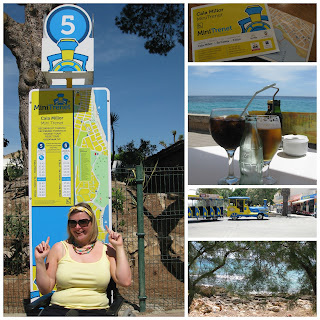I see friends and family whenever I can manage. (And sometimes when I can't!) But despite the best efforts of those who care about me I spend long periods of time by myself in the house. In the beginning this was a real problem for me, I like to be with people and couldn't get used to being alone. But over time I got used to it and as I improved a little I started to develop my creative side. Now, when I feel able, I craft. I write. I paint. I read. I keep myself engaged in little activities that keep my brain whirring over and my fingers busy. I see my friends when I can, taking time to recover and rest afterwards and cope with the increase of pain and other symptoms. I spend quality time with my parents and have created a garden from nothing with my dad, where with his help I can plant vegetables and flowers, taking great pleasure from watching them grow.
And mostly this is enough.
But sometimes, unexpectedly, the frustration kicks in and I am visited by the 'Want Monster'*.
My life is smaller than I want it to be. I want to be able to jump in the car and visit a friend. It's been ages since I last tried to drive. I want to go out at night to somewhere with loud music and dance the night away. To do the things my friends do. To visit the world, to start a family. To help others. To go for a walk! To have the freedom of choice in what I do.
To not feel pain in my body.
So how do I cope when the Want Monster comes knocking? Sometimes I don't. I shout into my pillow. I cry. But then my family and friends come to help. Sometimes all I need is for them to say "I know" or "we hate it too" and give me a hug. Sometimes I need my parents to whisk me away to their seaside house for a change of scene and some TLC. And sometimes I just need a temporary wallow in the horror that is daily, chronic illness.
But then, somehow I keep going. I think about all I have learned and I try to see it as a blessing. I pick up my needles and start to make something, or start a sketch, or write to a friend. If I'm stuck in bed I pop on an audio book and pass the time knowing that I won't feel this bad forever. I allow myself to rest, to shut down temporarily. Slowly things start to look up and I remind myself about how thankful I am that things are not worse, like when I was in hospital. That I can endure this time of change and upheaval as long as I have those that I care about around me. To try and think about the things i CAN do and stop longing for things that are out of my reach. 'Wanting' is a recipe for unhappiness.
There is no use pining for things that cannot be, that energy is wasted. Instead enjoy those things that can be, the things that are happening here and now. Of course I still want things to be different, to feel well, but I can quietly hope for better days whilst trying to keep the Want Monster at bay.
*I first read this phrase in Toni Bernhard's fantastic book, 'How to Live well with Chronic Pain and Illness' and can totally relate to it, having being visited regularly by the beast.



















